In 1935, ten-year-old Alex Maki of Bainbridge Island, Washington, is horrified to discover that his new pen pal, Charlie Levy of Paris, France, is a girl, but in spite of his initial reluctance, their letters continue over the years and they fight for their friendship even as Charlie endures the Nazi occupation and Alex leaves his family in an internment camp and joins the Army.
Concentration camps
What the Night Sings
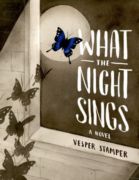
Liberated from Bergen-Belsen Concentration Camp in 1945, sixteen-year-old Gerta tries to make a new life for herself, aided by Lev, a fellow survivor, and Michah, who helps Jews reach Palestine.
The Boy In The Striped Pajamas
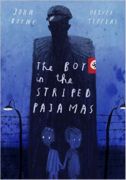
Berlin, 1942: When Bruno returns home from school one day, he discovers that his belongings are being packed in crates. His father has received a promotion and the family must move to a new house far, far away, where there is no one to play with and nothing to do. A tall fence stretches as far as the eye can see and cuts him off from the strange people in the distance.
Paper Hearts
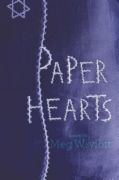
Making a birthday card in Auschwitz was all of those things. But that is what Zlatka did, in 1944, for her best friend, Fania. She stole and bartered for paper and scissors, secretly creating an origami heart. Then she passed it to every girl at the work tables to sign with their hopes and wishes for happiness, for love, and most of all—for freedom.
Fania knew what that heart meant, for herself and all the other girls. And she kept it hidden, through the bitter days in the camp and through the death marches. She kept it always.
Playing For The Commandant
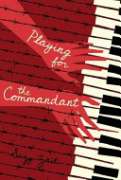
“Look after each other and get home safe. And when you do, tell everyone what you saw and what they did to us.” These are Hanna’s father’s parting words to her and her sister when their family is separated at the gates of the Auschwitz-Birkenau concentration camp. Her father’s words–and a black C-sharp piano key hidden away in the folds of her dress–are all that she has left to remind her of life before. Before, Hanna was going to be a famous concert pianist. She was going to wear her yellow dress to a dance. And she was going to dance with a boy. But then the Nazis came. Now it is up to Hanna to do all she can to keep her mother and sister alive, even if that means playing piano for the commandant and his guests. Staying alive isn’t supposed to include falling in love with the commandant’s son. But Karl Jager is beautiful, and his aloofness belies a secret. And war makes you do dangerous things.
See the review at WOW Review, Volume VII, Issue 3
Branded By the Pink Triangle
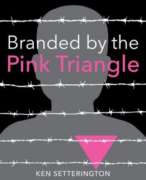
Before the rise of the Nazi party, Germany, especially Berlin, was one of the most tolerant places for homosexuals in the world. But that all changed when the Nazis came to power. The pink triangle sewn onto prison uniforms became the symbol of the persecution of homosexuals, a persecution that would continue for many years after the war. A mix of historical research, first-person accounts and individual stories brings this time to life for young readers.
Rose under Fire
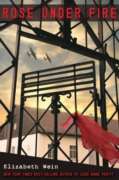
When young American pilot Rose Justice is captured by Nazis and sent to Ravensbrück, the notorious women’s concentration camp, she finds hope in the impossible through the loyalty, bravery, and friendship of her fellow prisoners.
See the review at WOW Review, Volume 7, Issue 1
The Holocaust
Great Escapes presents accounts of narrow escapes to illuminate historical events from a distinct, personal perspective from a Holocaust survivor.
Fragments Of Memory
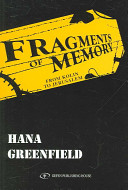
The extermination of Jews, political prisoners, homosexuals and other undesirables by the Nazis during the 1940’s is very well documented in hundreds of historical books, but without the eye witness testimony of the few who survived this period they become almost hollow.
In Fragments of Memory, Hana Greenfield relives the horrors of the European Jewish population, during what came to be known as the Holocaust, in spellbinding and horrifying detail.
She remembers family, friends and neighbors who were subjected to inhumane treatment, humiliation, hunger and brutality on a daily basis. She recalls horror, fear and sadness, but also brief and all too infrequent moments of hope and happiness, which are often followed by yet more despair.
Each story is well written in small, bite-sized chunks, and each can be read as a stand-alone piece or as part of the whole book, making it easy for the reader to dip in and out of the chapters as they please.
The sheer horror of Hana’s time in different camps, including the notorious Auschwitz, and the constant fear in which she was forced to live, is conveyed through these tales in a way that only one who had lived through it could deliver.
Four Perfect Pebbles: A Holocaust Story
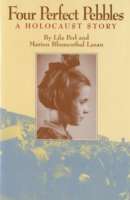
By the time WWII ended in Europe, the Blumenthal family–Marion, her brother Albert, and their parents–had lived in a succession of refugee, transit, and prison camps for more than six years, not only surviving but staying together. This memoir is written in spare, powerful prose that vividly depicts the endless degradation and humiliation suffered by the Holocaust’s innocent victims, as well as the unending horror of life in the camps.
